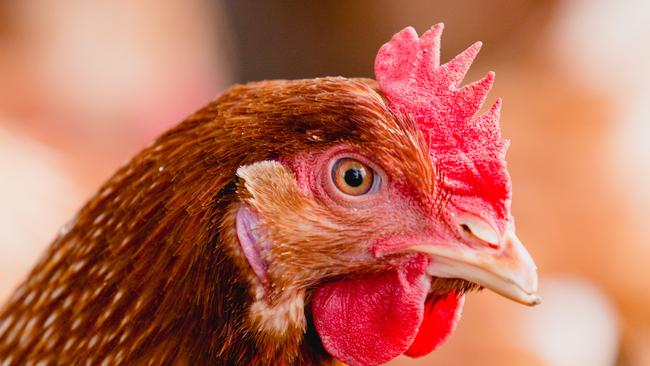Bird flu detected in more Victorian poultry farms
A fourth farm has been hit with avian influenza, all of which are in close proximity in North East Victoria. See the latest.

Victoria
Don't miss out on the headlines from Victoria. Followed categories will be added to My News.
Four Euroa poultry farms have been hit with the H7N8 avian influenza, with genomic sequencing showing the outbreaks are unrelated to last year’s NSW cases.
Victoria’s Acting Chief Veterinary Officer Dr Cameron Bell said given the proximity of these properties, the latest outbreaks was not unexpected, and that Agriculture Victoria staff were on the ground working closely with industry to contain and eradicate the virus.
Control orders have been in place since H7N8 AI was first detected on a Kinross Farm on February 8, restricting the movement of poultry, poultry products, equipment, and vehicles on or off properties in designated zones around the infected properties to prevent disease spread.
These zones include a restricted area covering a 5km radius around the farms, with a broader control area spanning east of the Goulburn Valley Freeway, and including the townships of Euroa, Violet Town, Longwood, Ruffy, Avenel and Strathbogie.
“If you are in the control or restricted areas, you cannot move birds, products (including eggs and manure) or equipment into, out of, or within the area without permit,” Dr Bell said.
“This includes selling or giving away eggs from your poultry – these must not leave your property.”
With the confirmation of H7N8 on a third property, a housing requirement remains in place for properties with 50 or more poultry in the restricted area. This includes Euroa and extends approximately 5km from the affected properties in all directions.
To reduce the risk of further disease, birds on these properties must be kept in cages or sheds to avoid contact with other birds. This is a proven method to minimise direct contact between poultry and wild birds.
Poultry and bird owners are reminded to keep sheds, yards, aviaries and equipment clean, and to restrict contact with wild birds.
They should ensure their footwear is clean and wash hands before and after handling birds or eggs. New birds should be quarantined before being integrated with existing ones.
“A strong biosecurity system relies on everyone playing their part,” Dr Bell said.
“Immediate notification from poultry owners when they notice their poultry are unwell is crucial to us getting on top of this outbreak.”
Community members must report suspect disease and sudden poultry death by calling the VicEmergency Hotline on 1800 226 226.
More Coverage
Originally published as Bird flu detected in more Victorian poultry farms




